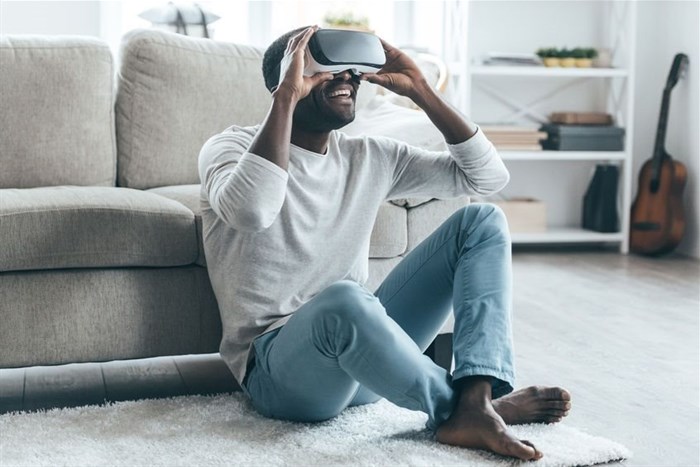
Top stories






More news

















Logistics & Transport
Uganda plans new rail link to Tanzania for mineral export boost









Having spent the last five years developing businesses in the technology start-up industry in the hospitality space, Clemens was invited by Africa Travel Week to host a VR in tourism webinar in the build-up to Travel Forward 2021. The annual trade show centres around the global travel technology industry -and will run alongside WTM Africa, virtually from 7-9 April.
For those still new to VR, it refers to interactive images or videos that enable the viewer to explore the entire 360 degrees of a scene. Unlike a regular image or video, shot from a fixed viewpoint, VR production captures every part of a location.
"Virtual reality can offer a new way to engage travellers," says Clemens. "Being able to capture tourism destinations in such a memorable and immersive way is a powerful marketing tool."
Vladimir Varnavskii, founder and CEO: VResorts.io, who joined Clemens on the panel, adds that VR has become exceptionally powerful during Covid-19. "Most notably, the online demonstrations and virtual tours or presentations of hotels, which is just as good as walking someone through your accommodation in person."
Other important elements that are fast becoming popular include VR headsets and VR booking platforms. "Currently, over 200 million people across the globe own their own headsets, who we have access to, and we already have feedback from users saying that they want to explore and book their hotels like that," he explains.
Also on the Africa Travel Week webinar panel was Caryll McDonald, director: business and brand development, Dream Hotel and Spa and Dream Beach Club in Thailand. Having used VR successfully over the last few years, the 177-room ultra-modern, luxury hotel is known for its youthful and chic clientele. Within their portfolio, is the Dream Beach Club, one of the largest beach clubs on the island of Phuket, famed for its lavish parties with headlining DJs.
"The background information of the hotel is important as to why we adopted VR and how we were able to leverage it," she explains. "Our VR story started when we realised that we needed fresh video content and had to upgrade a lot of our old content. At the time, it just so happened that the team from VResorts.io walked into the office and pitched VR and thankfully our GM, who is tech-savvy and forward-thinking, was able to connect the dots and see that this visually chic product offering fully-aligned with our brand."
Describing herself as a "non-techie", McDonald explains that the moment she put on the VR goggles, which were cool, fun and edgy, she realised it made her feel cool, fun and edgy. "The goggles translated the feeling of our brand for what it is, instead of just highlighting what VR does, and that was the real win for us" she adds.
In terms of usage, McDonald explains that they purchased video content for their social media but also used the VR headset and equipment at international trade shows to showcase the hotel to potential trade partners instead of just relying on brochures or USBs with image galleries.
"Most VR users are in the US and they are a big market for us,” adds McDonald, highlighting that one of the greatest strengths of VR is allowing the user to experience the feeling of ‘being there’. “Whilst regular images and videos can work well for showing what a destination has to offer, they don’t often elicit an emotional response," she says.
According to research carried out in Germany by Statista, almost 50% of people would use VR as a tool for choosing their holiday destination (providing it was free) and 13% of those surveyed were actually willing to pay for the VR.
"We’re also seeing a lot of younger travellers becoming more accepting of VR technology in tourism, especially at virtual events and conferences," explains Rudi van der Vyver MD: EPH Events and CEO for We Are Virtual.
"I know the term ‘the new normal’ has been overused, so I’d prefer to say that it’s going to be a different normal for us and we’re going to need to adapt and become comfortable, especially those within the older generation. Events bring people together and tourism brings people into the world and I think there is no better time to innovate, to not be scared and to develop a sense of 'technological fitness'.
"Looking holistically at VR, and looking into the future, there are lots of tech companies that are handing over their tech for free to university students to test, for example, the VR hub that has been established at Alto University in the US," she explains.
"The reason is that the students are the future end-users and future decision-makers when it comes to brands, so by the time they are sitting in a general maneger position or sales and marketing position, they already know the tech and are comfortable with it. Looking at it like that, VR is an investment in the macro-picture, and you’re going to spend on VR, if not now then definitely later."
